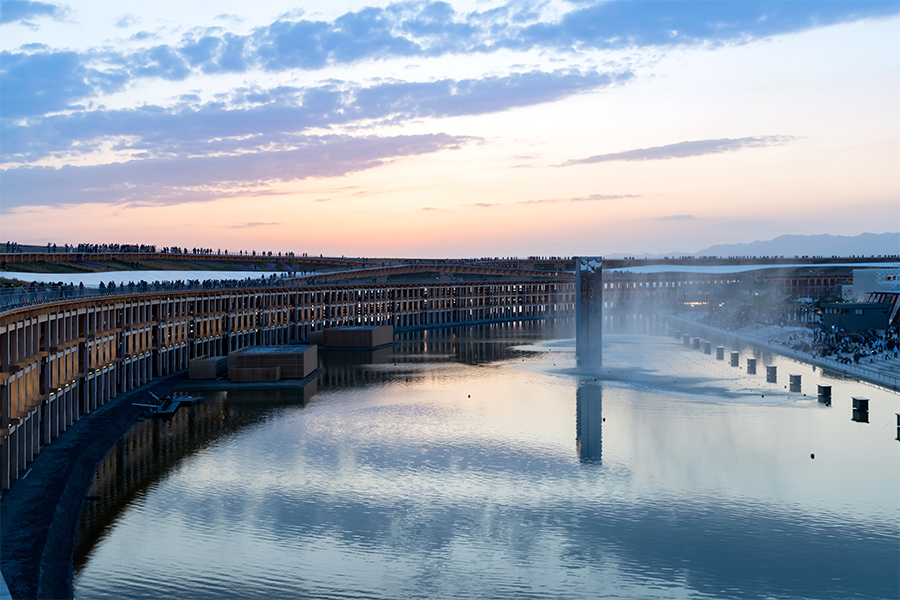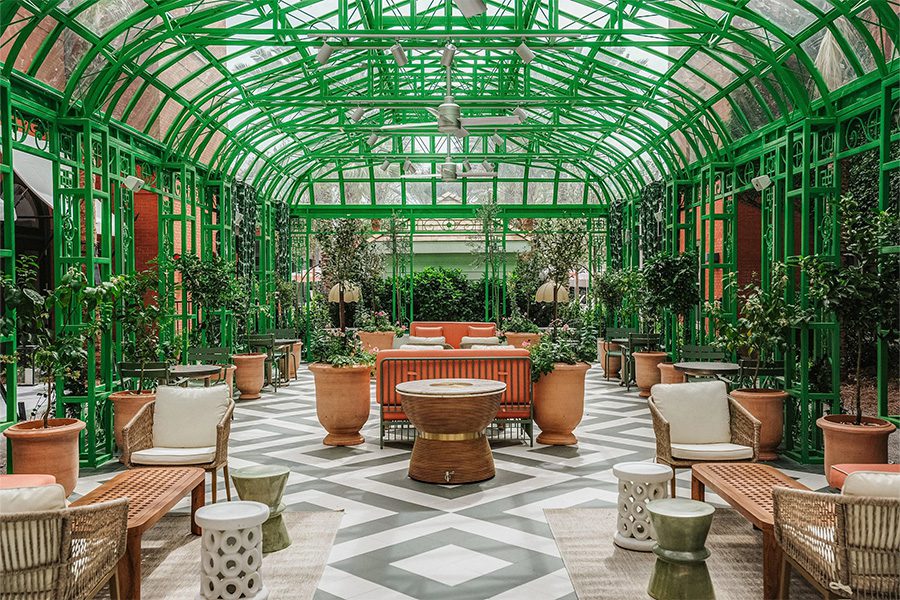HD checks the industry’s pulse as hotels, restaurants, and cruises continue to grapple with COVID-19, The New Yorker ponders how the pandemic will change architecture, and the city of Vilnius gets creative with a beach pop-up in its town square. All this and more in this week’s Five on Friday.
HD checks in with the cruise, restaurant, and hotel industries
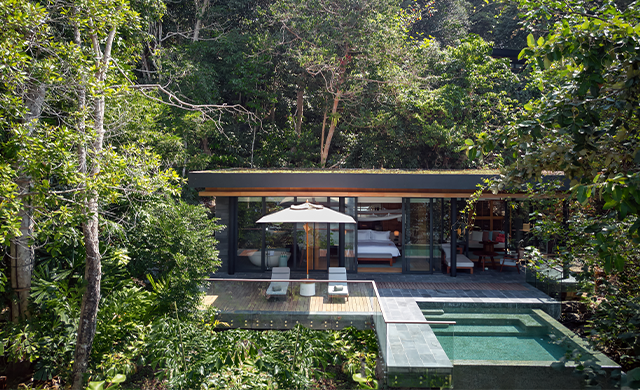
In HD’s June issue, we checked in with leaders from the cruise, restaurant, and hotel industries to see how they’re adapting to, and finding opportunity in, our new COVID-19 reality. Although global tourism is expected to decline by nearly 80 percent in 2020 alone, leaders like Roger Dow, president and CEO of the U.S. Travel Association anticipates a refreshed interest in travel sooner than we may expect. And while the challenges are immense, especially for restaurants, the experts demonstrate a resolve to weather what is ahead with innovative and thoughtful solutions.
How the coronavirus pandemic will change architecture
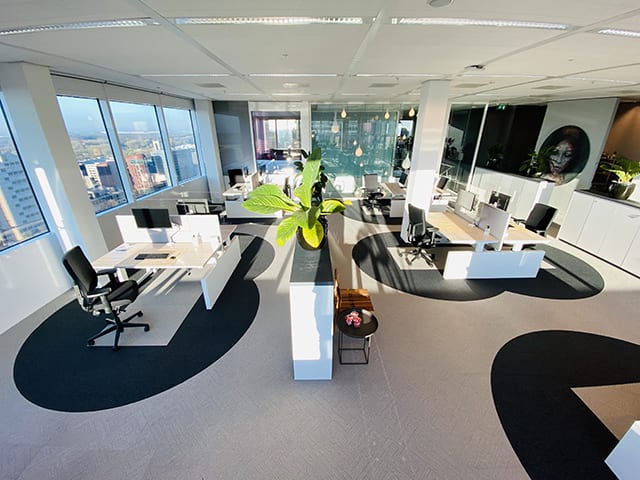
There’s a reason modernist architecture often prevails in healthcare facilities—it emerged in response to the fear of diseases like Tuberculosis in the early 20th century. Design writer Kyle Chayka cites this and other bonds between public health and architecture in The New Yorker, as he ponders the impact COVID-19 may have on the architectural vernacular.
Chayka examines domestic and office environments as well as cities to consider our growing preference for separation and distance. Considerations like enhanced acoustics and designated workspaces will likely inform residential designs moving forward as well as partitions to limit a free flow of rooms. Philosophies like existence minimum may also become more palatable as we reprioritize our needs in a more insulated world, while extensive barriers and signage will likely enforce our behavior in offices, in addition to an array of ad hoc solutions.
AHLA: Americans support travel industry stimulus

A new survey from the American Hotel & Lodging Association (AHLA) and the Morning Consult has revealed that 70 percent of Americans “overwhelmingly” support efforts by Congress to assist in the recovery of the travel industry with an additional economic stimulus package. According to Hotel Management, only 18 percent of Americans have traveled overnight since March and this disparity has resulted in more than eight in 10 hotels forced into layoffs and furloughs. In addition to the majority approval of stimulus support, 61 percent of Americans also claimed to support a temporary federal travel tax credit to encourage people to travel, while 57 percent of Americans support the restoration of the business entertainment expense deduction to encourage business travel.
Beach pop-up opens in the heart of Vilnius

The Lithuanian capital of Vilnius has unveiled a new beach attraction in the city’s largest square, Lukiškės Square. Known as Open Beach, the concept comprises white sand, wooden paths, sun loungers, a lifeguard tower, and changing booths to immerse citizens in a beach experience despite the travel limitations forced upon them as a result of COVID-19, writes Travel + Leisure.
“We could not ignore the fact that many people had to drastically change their already-planned vacation due to quarantine,” says Vilnius Mayor Remigijus Šimašius. “The popular seaside resorts of Southern Europe are not easily accessible at the moment, and our Baltic Sea beaches will be overpacked this summer. That’s why we needed a solution to help people recoup some of that vacation vibe on Vilnius’ very own beach.”
Hotels could face $9 billion in new operating costs
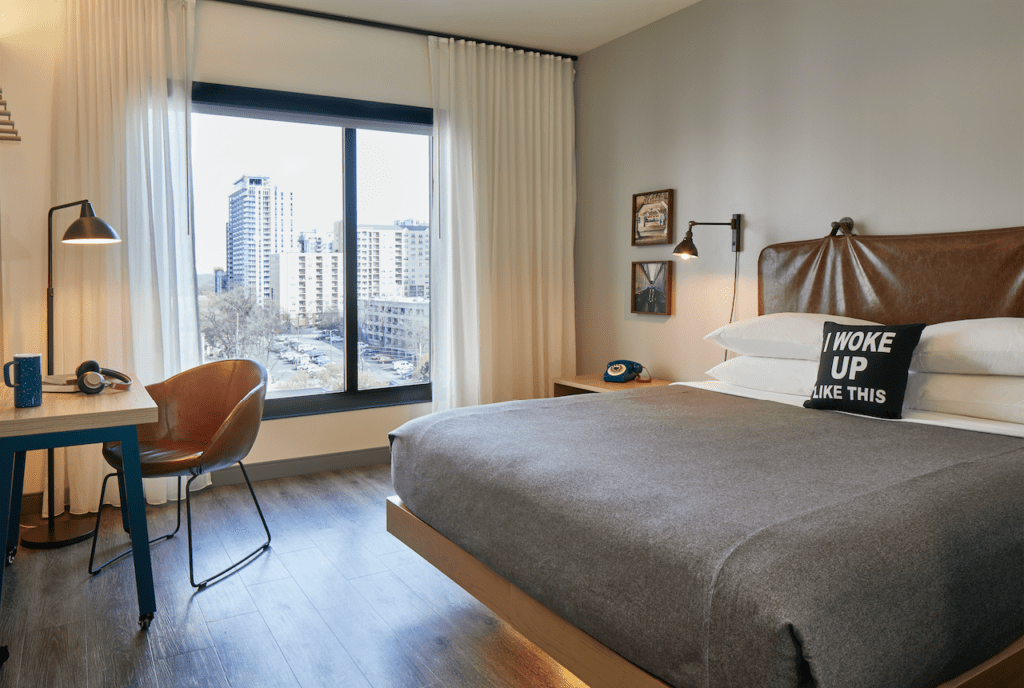
Hotel owners are faced with rising operational costs to keep up with new cleaning standards due to the coronavirus, writes Skift. Hotel Asset Value Enhancement (HotelAVE) estimates that operators could spend as much as $9 billion each year due to higher frequency cleanings and new materials in an effort to woo back travelers. Additionally, hotel data provider HotStats found that operating costs have already increased by 15 percent due to the addition of PPE like masks and gloves. Yet, Some operators, like Wyndham Destinations CEO Michael Brown told Skift that some of these safety and cleaning protocols could be temporary once there’s a vaccine.


